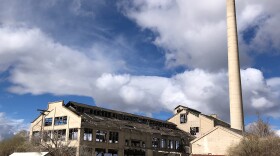-
This week Evelyn Funda continues exploring the history of spices, herbs, and flavorings. Rather than focusing on our sense of taste she focuses on our sense of smell and the use of vanilla in perfumes.
-
German POW’s in Cache Valley? This led me to ask more questions. I found out in 1945 there were close to 400 German POWs living in tents in a work camp at the Cache Valley Fairgrounds.
-
This week Evelyn Funda continues the theme of the cultural history of spices and how one particular spice's road to our kitchen cupboards has been long and twisted.
-
This week host Evelyn Funda leans into a quirky aspect of the culinary history of her home state of Idaho.
-
USU Extension's IMP Specialist Marion Murray is back in studio sharing some tips on combating grasshoppers for the summer season.
-
Henry Ford was both personally and financially invested in making soy America’s largest crop. Host Laura Gelfand and guest Michelle Davis, author of several vegan cookbooks, talk about Ford's many soy inventions.
-
Ben Scow, USU Extension Washington county agriculture and horticulture agent talks about pest control for warm season crops.
-
Ben Scow with USU Extension in Washington County gives tips on when and what to plant for the upcoming gardening season.
-
Dr. Chris Conte, professor in USU's History Department, joins host Tammy Proctor to talk about East African cuisine and if the mandazi is or is not a dumpling.
-
A USU Plants, Soils and Climate professor was recently awarded a major USDA grant to study plant-growth bacteria in increasingly high-salt and drought conditions.

Play Live Radio
Next Up:
0:00
0:00
Available On Air Stations










